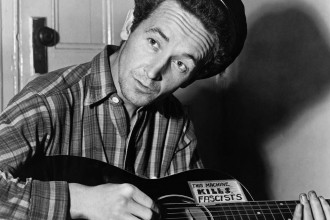On February 23, The Bull & Bear joined the Syrian Students’ Association and Centre Culturel Syrien for the first session in their series One Syria: Ziad Demian on Post-War Reconstruction.
Mr. Demian is a founding partner at Demian Wilbur Architects, and on the advisory board at Virginia Tech. A Syrian national, based in Washington D.C., Demian spent a substantial amount of time in 2010 working on a plan for the urban redesign of Damascus as a green city.
Before the presentation began, executives of the Syrian Students’ Association took a moment to acknowledge the current devastation in Syria. Moderator and VP Media and Communications of the association, Yousef, stressed the importance of reconstruction dialogue, emphasizing that “as with all wars, [this one will] eventually end, so that when the time comes for reconstruction, be it 10 days from now [or] 10 years from now, that we have some knowledge about it so we can do it in the most proper way.”
Demian began his presentation with a slide show of other war-torn states, both pre- and post- reconstruction. “Destruction is not unique to Syria,” he said, “when fighting is for survival it’s very vicious and very violent, and no culture, no group of people is immune to this.”
He stressed the importance of identifying meaningful studies and analyzing past cases of successful reconstruction. “As the debate rages in Syria about the post-war construction of Syria, many…argue that it is premature to start thinking about reconstruction when the destruction of the country continues unabated, and maybe the real destruction of the country is just beginning. Looking back however, at instances where countries suffered similar trauma, leads to the conclusion that it’s never too early to start the planning process for reconstruction.”
When fighting is for survival it’s very vicious and very violent, and no culture, no group of people is immune to this.
Demian pointed out that there are different types of reconstruction, not just architectural. “The animosity is within society and restitching its torn up fabric. [This] is more important than the brick and mortar reconstruction. It is never too early to start the process of reconciliation.”
He reminded the audience of the role Syria plays in a global context, continuing to say, “I owe it to myself and everybody here to repeat that, Syria is one of the world’s most outstanding and irreplaceable heritage sites. It has universal values across a range of culture and times…the systematic destruction of places like Aleppo’s souks [markets] makes one think that the target is also to destroy the spirit and the identity of the country.”
He went on to highlight the impact of return-migration and a bottom-up approach to rebuilding infrastructure. The audience agreed, and many individuals of Syrian and Lebanese origins shared their distaste for the exclusionary reconstruction of post-war downtown-Beirut, emphasizing the importance of including the people in the process. Demian agreed, stating: “We can help [Syrians] from here, but let them take the lead.”








